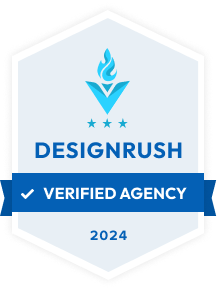The role of marketing managers in today's digital landscape extends beyond traditional strategies to encompass the realm of website design solutions. As marketing manager website design solutions become increasingly essential for capturing and retaining online audiences, mastering the art of creating impactful websites is paramount. In this blog post, we delve into the top website design solutions tailored specifically for marketing managers, equipping them with the tools and insights needed to elevate their online presence and drive marketing success.
Essential Features of Marketing Manager-Friendly Website Design
In the competitive digital landscape, marketing managers need websites that not only look appealing but also drive results. Here are some essential features that every marketing manager should consider when designing a website for success:
Mobile Responsiveness
-
Ensure your website is fully optimized for mobile devices to cater to the increasing number of users accessing the internet through smartphones and tablets.
-
Responsive design improves user experience, reduces bounce rates, and boosts SEO rankings.
SEO-Friendly Structure and Content
-
Implement SEO best practices in both the structure and content of your website to ensure high visibility on search engine result pages.
-
Conduct keyword research and optimize meta tags, headings, and content to attract organic traffic.
Integration of Analytics Tools
-
Incorporate analytics tools like Google Analytics to track website performance, user behavior, and conversion rates.
-
Use data-driven insights to make informed decisions and continuously refine your website to align with marketing objectives.
By focusing on these key features, marketing managers can create websites that not only captivate audiences but also drive business growth and engagement.
For more insights on SEO best practices, check out Google's SEO Starter Guide.
Choosing the Right Design Elements for Effective Marketing Strategies
As a marketing manager, selecting the appropriate design elements for your website is crucial for attracting and engaging your target audience. Here are some key considerations to keep in mind:
High-Quality Visuals and Graphics
-
Use high-resolution images and graphics that align with your brand identity and resonate with your target demographic.
-
Visual elements play a significant role in capturing audience attention and conveying your brand's message effectively.
Clear Call-to-Actions
-
Strategically place clear and prominent call-to-action buttons throughout your website to guide visitors towards desired actions.
-
Whether it's signing up for a newsletter, requesting a quote, or making a purchase, CTAs should be persuasive and easily accessible.
Landing Page Optimization
-
Optimize your landing pages to align with specific marketing campaigns and objectives.
-
Tailor the content, design, and messaging of landing pages to encourage conversions and lead generation.
By focusing on these design elements, marketing managers can create websites that not only look visually appealing but also drive desired actions from visitors.
For additional tips on optimizing landing pages, refer to HubSpot's guide to landing page best practices.
Utilizing Content Marketing Strategies for Website Design Success
For marketing managers, integrating effective content marketing strategies into website design is paramount for engaging audiences and driving conversions. Here are some key elements to consider:
Compelling Copy and Messaging
-
Craft persuasive and engaging copy that resonates with your target audience and communicates your brand's unique value proposition.
-
Use storytelling, testimonials, and case studies to create a connection with visitors and guide them towards specific actions.
Blogging and Resource Sections
-
Establish a blog section on your website to regularly publish relevant content that educates, informs, and engages your audience.
-
Offer downloadable resources such as e-books, whitepapers, or guides to provide value and capture leads.
Social Media Integration
-
Integrate social media buttons and feeds on your website to encourage social sharing and interaction with your content.
-
Leverage social platforms to amplify your reach, drive traffic to your website, and foster community engagement.
By leveraging these content marketing strategies within website design, marketing managers can enhance brand visibility, establish authority, and drive meaningful connections with their audience.
For more insights on content marketing best practices, refer to Content Marketing Institute's resources.
Best Practices for Maintaining and Updating Marketing-Oriented Websites
Marketing managers should prioritize maintaining and updating their websites to ensure continued effectiveness in achieving marketing goals. Here are some best practices to consider:
Regular Content Updates
-
Update website content regularly to keep information fresh, relevant, and engaging for visitors.
-
Regularly publishing new blog posts, articles, or product updates can attract returning visitors and improve SEO performance.
Monitoring and Improving Website Performance
-
Use tools like Google Analytics to monitor website performance metrics such as traffic, bounce rates, and conversion rates.
-
Analyze data to identify areas for improvement and optimize the website for better user experience and conversion rates.
A/B Testing for Continuous Optimization
-
Conduct A/B tests on elements like headlines, calls-to-action, and page layouts to refine website performance and user engagement.
-
Testing different variations allows marketing managers to make data-driven decisions for ongoing website improvements.
By implementing these best practices for website maintenance and updates, marketing managers can ensure their websites remain effective tools for driving business growth and brand awareness.
Explore more about A/B testing from Optimizely.
Top Website Design Solutions for Marketing Managers
In a digital age where an online presence is critical for businesses, marketing managers play a vital role in crafting websites that effectively represent brands and capture customer attention. Here are some top website design solutions tailored for marketing managers:
User-Friendly Design for Marketing Success
-
Ensure intuitive navigation and user-friendly interfaces to enhance the overall user experience.
-
Opt for clean layouts, clear typography, and visually appealing design elements to keep visitors engaged.
Incorporating Branding Elements
-
Infuse the website with consistent branding elements such as colors, logos, and messaging to reinforce brand identity.
-
Create a seamless brand experience across all website pages to increase brand recognition and trust.
Optimizing for Lead Generation and Conversion
-
Implement lead capture forms, pop-ups, and interactive elements strategically to encourage visitor conversions.
-
Use compelling calls-to-action and conversion-focused design elements to guide users towards desired actions.
By focusing on user experience, branding, and conversion optimization, marketing managers can create websites that not only attract visitors but also convert them into loyal customers.
For more insights on website design best practices, consult WebFX's guide to website design.
How important is user experience in website design for marketing managers?
User experience is paramount in website design for marketing managers as it directly impacts visitor engagement, retention, and conversion rates. A seamless and intuitive user experience enhances brand perception and encourages users to explore the website further.
What role does branding play in the success of a marketing manager's website design?
Branding is crucial for creating a strong identity and fostering brand recognition. Consistent branding elements such as colors, logos, and messaging help reinforce brand identity and establish trust with the audience.
Why is mobile responsiveness essential for marketing manager websites?
With the increasing number of users accessing websites on mobile devices, mobile responsiveness is vital for ensuring a consistent and optimized experience across different screen sizes. It improves user engagement, SEO rankings, and overall user satisfaction.
How can marketing managers optimize their websites for better lead generation?
Marketing managers can optimize their websites for lead generation by strategically placing lead capture forms, implementing compelling calls-to-action, and offering valuable incentives to encourage visitors to take action and provide their contact information.
What tools can marketing managers use to track and analyze website performance?
Marketing managers can utilize tools like Google Analytics to track various performance metrics such as website traffic, user behavior, conversion rates, and engagement levels. These insights help in making data-driven decisions to optimize website performance and achieve marketing objectives.





